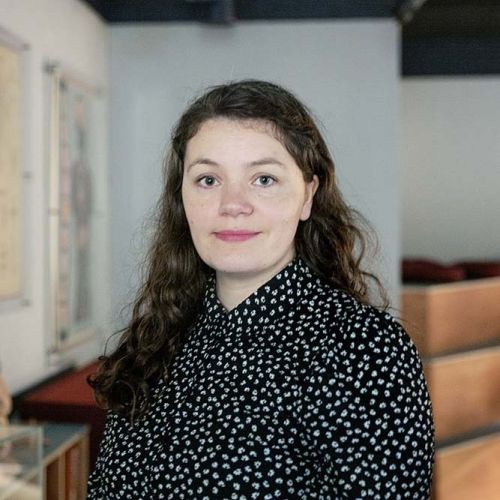Music and science
Sound lab
- Home
- School and kindergarten
- 7–10 steps
- Sound lab
Have you ever been fascinated or moved by the music when watching a movie? Bring your class to The Norwegian Museum of Science and Technology and let your students explore sound and video. The teaching offer is free.
NB! Show up no later than 10 minutes before the lesson. Failure to attend without cancellation 7 days in advance will result in a NOK 500 fee.
NOTE: This offer is no longer available for new bookings for spring 2025. Existing registrations will be carried out as planned.
Maximum 28 students
What happens in this teaching program?
Curriculum and competence targets | Science (grade 7):
Music:
Music (grades 8-10):
Arts and crafts
|
Description of the lesson | The supervisor meets the class at reception and we go to the exhibition together. We introduce the topic and students help carry out different experiments with electricity, magnetism and vacuum. Finally, we put the experiments together and make the northern lights! Our activities can be linked to Professor Kristian Birkeland's aurora research around the turn of the century, and several of his original aurora instruments can be found in the exhibition. |
Practical information | The teacher's role We want you as an adult to be active, participating and curious. Teachers are responsible for the group throughout the visit and may be asked to help along the way. Explainer is responsible for implementing the program. Before the visit Our teaching plans do not require preparatory work, but it is always useful to prepare students for a museum visit. Feel free to show pictures or video from the museum, tell us about what will happen, and see our digital resources that can be used for pre- and post-work. After the visit Reflect and discuss with the students after the lesson, preferably in groups. |
You meet one of us!

Linda

Tommy

Catharina
Resources
Below you will find various resources that can help prepare students for a museum visit.
-
What exactly is music?
-
What examples of film music do you know?
-
How can music affect how one experiences a film/video clip?
-
What differences are there between the music that was made 50 years ago and the music that is being made now?
Analyze a movie trailer
Choose a film trailer that contains some music and look together at the soundscape (that is, look at the music, the silence, the sounds). Suggestions for questions to start a conversation with the students:
-
If there is music, can you identify which instruments are used?
-
What expectations do you get for the film based on the soundscape?
-
If you were to change something in the soundscape to get, in your opinion, an even better film score, what would it be and why?
Common questions and answers
One of the teachers in the group approaches the reception. We will then register that you have arrived and you will be allocated a cloakroom space and possibly cabinet for locking up valuables.
Arrive at the museum no later than 10 minutes before the start of the program. Let us know if you will be delayed by phone. 22 79 60 00. If you arrive late, the learning offer may be shortened or cancelled.
Our teaching programs are free, but you have to pay for the entrance ticket to the museum. You can only book one arrangement per visit.
Separate prices apply to teachers, pupils and school classes.
Kindergartens and schools can pay by cash/card on arrival or receive an invoice. For invoices, you must include the requisition or resource number and invoice address.
Yes! Access to the museum's exhibitions is included in the ticket for school visits. You are most welcome to explore the exhibitions both before and after the lessons.
You can eat the packed lunch in different places; in the cafe, at the reception and outside the museum entrance. It is not allowed to eat or drink in the exhibitions.
At The Norwegian Museum of Science and Technology the same rules apply as at school/kindergarten. We will
- be role models for each other
- be kind to each other and the exhibits
- use consensus
- don't run.
ATTENTION: Everything behind barriers must not be touched.
Then we all have fun and contribute to a good learning experience. If you decide that your group can visit the museum shop, the teacher must be present as long as some of the children are there.

-7d04ba7c.jpeg)
-feca758d.jpeg)
-7936028f.jpeg)
-8599108e.jpeg)
-83c9f05c.jpeg)

